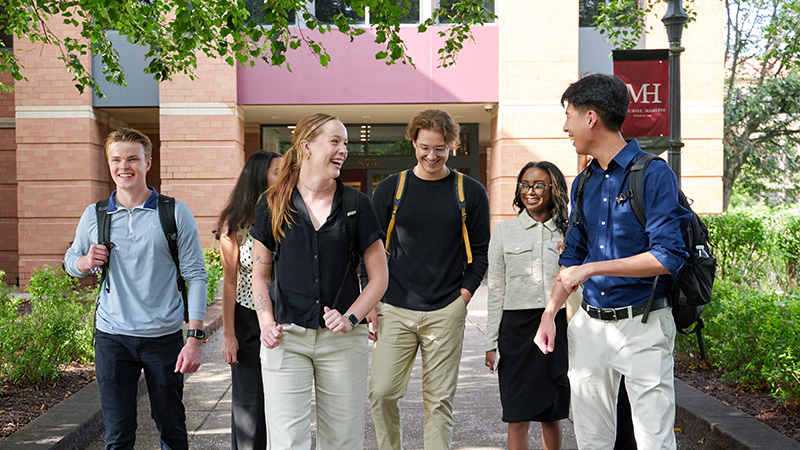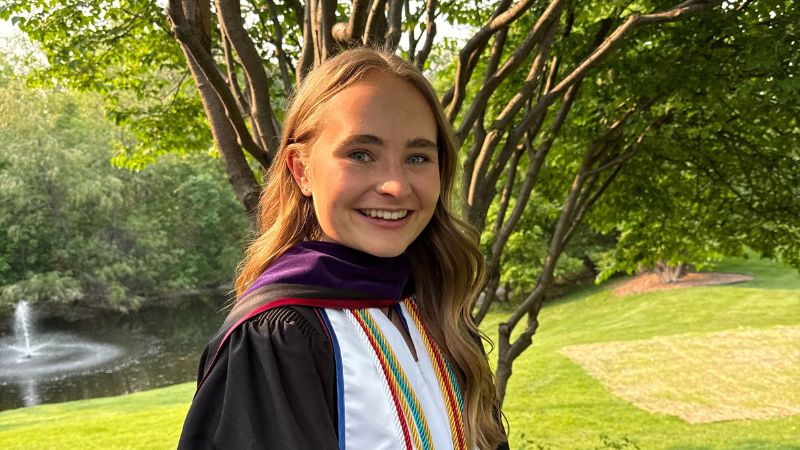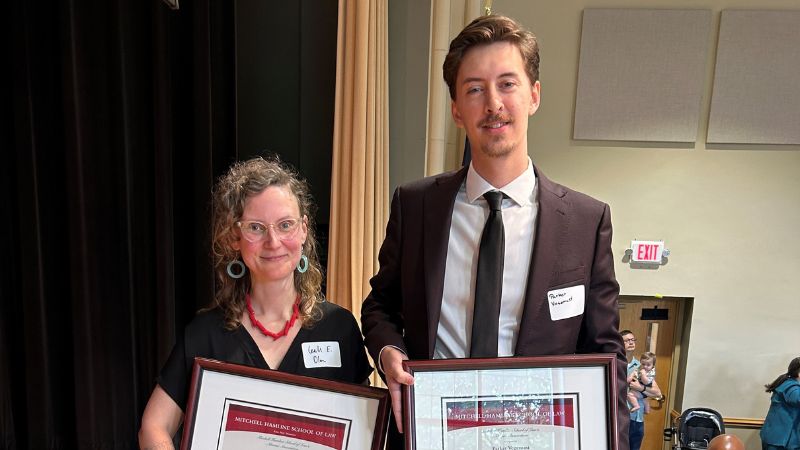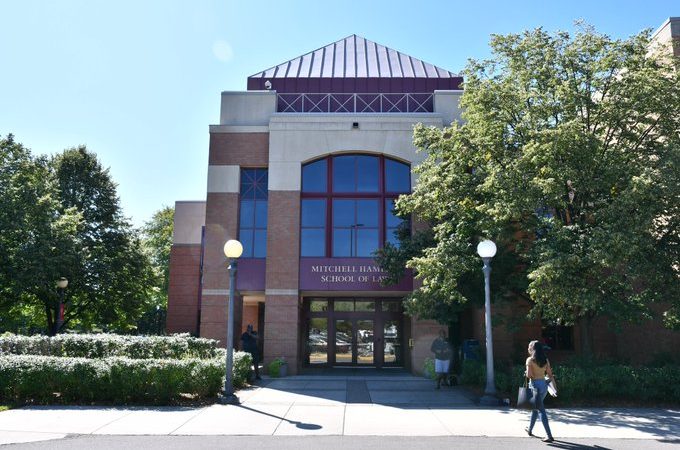
Mitchell Hamline student Kiana Carlson
A Mitchell Hamline student has been named as one of 17 members of a federal advisory group that will help identify and recommend changes to derogatory names used for places throughout the country.
Kiana Carlson (Ahtna Kohtaene, Taltsiine; Native Village of Cantwell, Alaska) learned she was named to the Department of the Interior’s Advisory Committee on Reconciliation in Place Names just a few days before she was to begin her second year in law school.
“Our nation’s lands and waters should be places to celebrate the outdoors and our shared cultural heritage – not to perpetuate the legacies of oppression,” said Interior Secretary Deb Haaland, in a statement announcing the group. “The Advisory Committee on Reconciliation in Place Names will accelerate an important process to reconcile derogatory place names.”
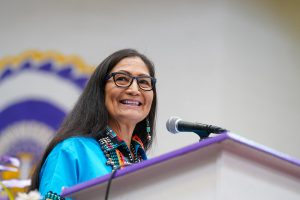
U.S. Interior Secretary Deb Haaland
Carlson was born and raised in Cantwell, Alaska. She enrolled in Mitchell Hamline’s blended-learning program so she could attend law school while living in her village. Her boss at Denali National Park and Preserve encouraged her to apply for the committee. She works seasonally for the cultural resources department, working with the park’s museum, archeology, and history staff on various projects.
“I wanted to be a part of the committee because I wanted to help share and hopefully correct the history of the place names that surround us day to day,” said Carlson. “Many people – including me at times – are unaware that the names of places and things are derogatory or racist.
“There are many examples of places that have blatantly offensive names, like ‘sq***’ or ‘savage.’ But many other names aren’t as obvious but equally derogatory or racist in nature that need to be spotlighted and hopefully changed.”
In addition to the flexible enrollment options, Carlson says she chose Mitchell Hamline because of the outreach from the law school’s Native American Law and Sovereignty Institute. “Before I was even a Mitchell Hamline student, I felt I was already a part of the Mitchell Hamline community and truly felt I was going to be supported,” she added.
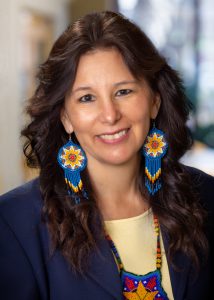
Professor Angelique EagleWoman
“Kiana is one of our Alaska Native law students deeply connected to her home community and attending law school in our online blended-learning program,” said Professor Angelique EagleWoman, director of the Native American Law and Sovereignty Institute. “Through her love of her homelands, culture and history, Kiana’s voice will bring forward positive change uplifting Native peoples and lands.”
Members of the committee will meet two to four times a year to “identify geographic names and federal land unit names that are considered derogatory and solicit proposals on replacement names,” according to the Department of the Interior. The effort is an extension of one started by Haaland – the first Native American to serve as secretary of the department – that focused specifically on the use of the term “sq***” in federal place names. The word has been used as a racial and sexist slur against Indigenous women for centuries, particularly by white settlers.
That process found more than 660 uses of “sq***” on features like rivers, lakes, and creeks. A separate task force created to study just that one racist term is forwarding recommended replacement names, which are expected to get a final vote in September from the U.S. Board of Geographic Names.
The committee that includes Carlson will now extend that work by studying and recommending name changes regarding additional derogatory terms.
Learn more about Mitchell Hamline’s Native American Law and Sovereignty Institute.
Mitchell Hamline welcomes record number of Native students (2021)

